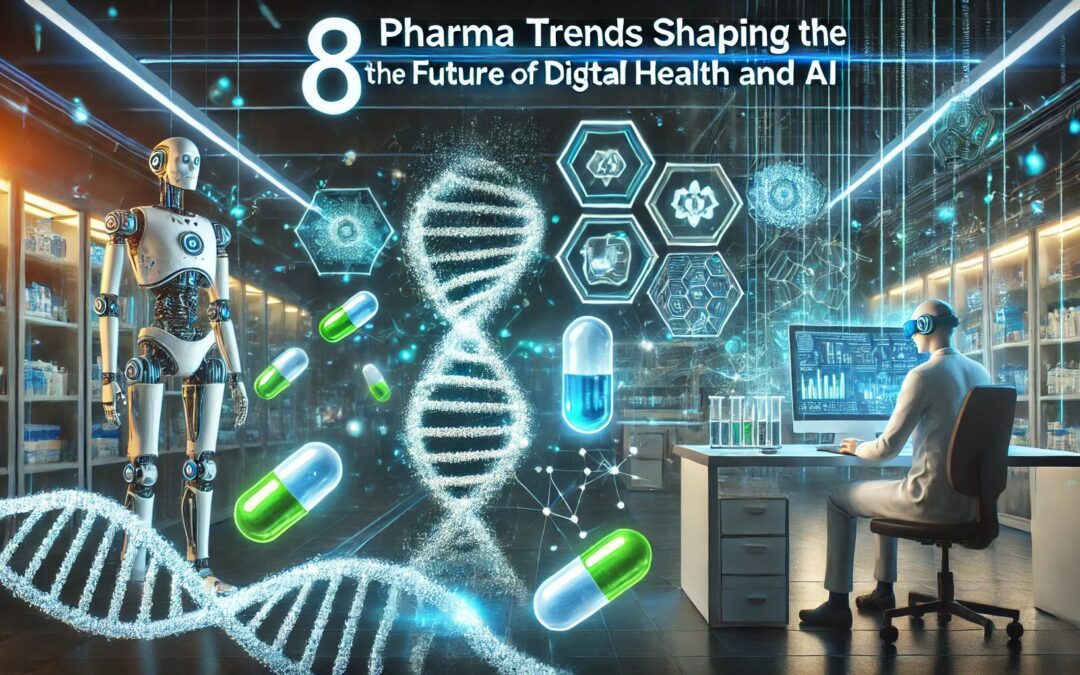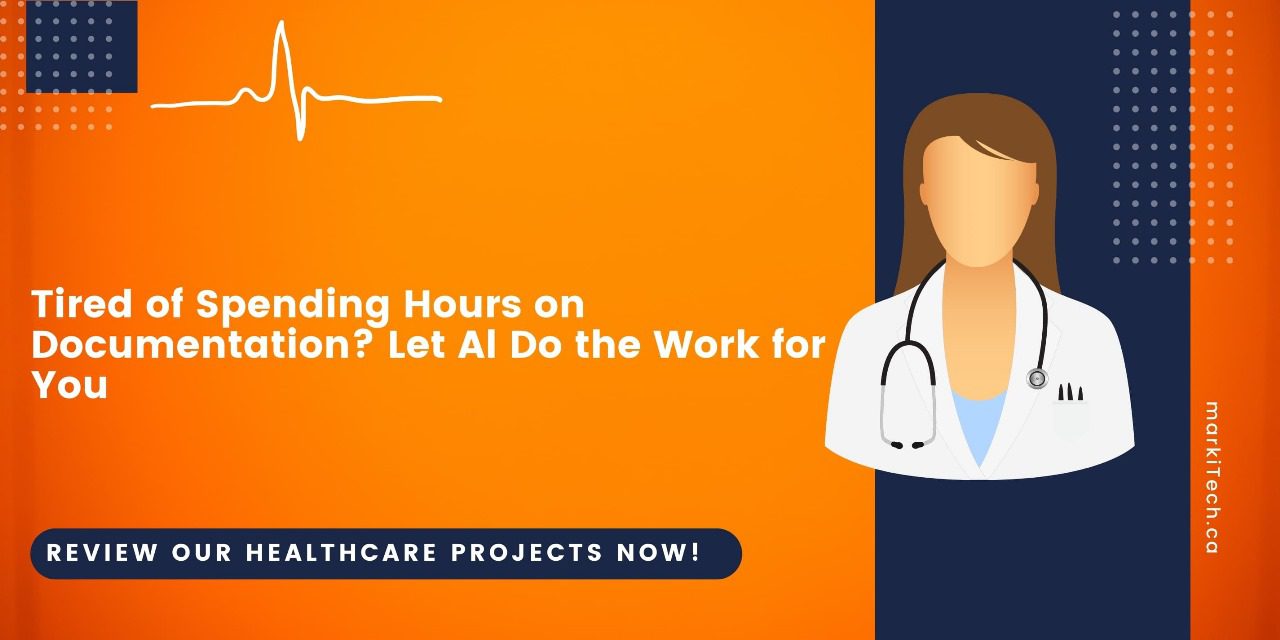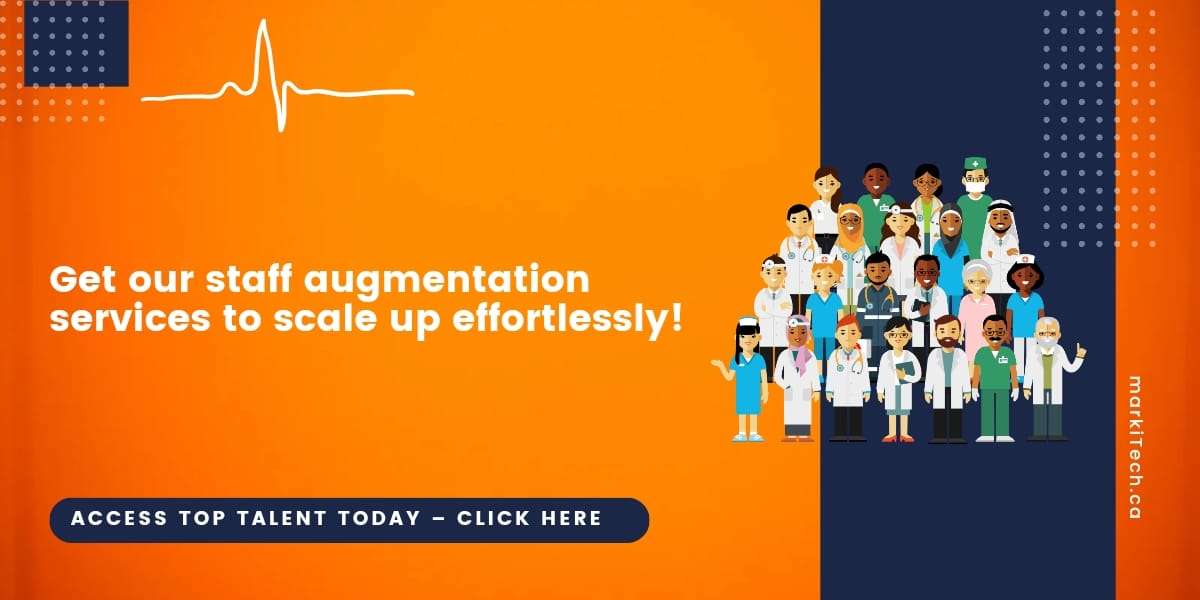Medically Reviewed by: Dr Alex Evans
Image Credits: Canva
Key Takeaways
The pharmaceutical industry rapidly evolves due to Digital Health Solutions and AI in healthcare technologies.
- Investments in long-term visions, such as AI-driven R&D and digital therapeutics, are essential for sustained innovation.
- Patient-centric approaches, leveraging tools like 3D printing and automation, are redefining care delivery and operations.
AI in Drug Research and Development
Artificial intelligence is transforming the traditionally time-consuming drug discovery process. Platforms like Google DeepMind and Benevolent AI analyze vast datasets, identifying drug targets and predicting outcomes with speed and precision. By optimizing workflows, artificial intelligence technologies reduce costs and accelerate market delivery.
Marketing Insight: Highlight how your AI development solutions outperform competitors by reducing time-to-market while improving safety and efficiency.
Innovative Reimbursement Models
Pharma companies are merging medications with smart technology to create holistic health packages. For instance, GSK partnered with Propeller Health on smart inhalers that enhance adherence and outcomes. Such models benefit patients and insurers by delivering better results at lower costs.
Marketing Insight: Emphasize ROI for stakeholders and improved patient experiences through custom software development to differentiate your offerings.
Large language models (LLMs) like Chat GPT and Roche GPT streamline operations and enhance customer interactions. These tools automate data extraction, improve efficiency, and provide patients with personalized responses, creating a seamless experience.
Marketing Insight: Incorporate AI applications and machine learning and artificial intelligence tools into marketing automation and customer support to build trust and engagement.
Automation Revolutionizing the Supply Chain
Automation reduces inefficiencies in the supply chain, from predictive AI in healthcare companies for preventing drug shortages to robotics in manufacturing. Tools like Denso Robotics enhance precision and scalability, while drone deliveries promise faster distribution.
Marketing Insight: Position automation and technology and AI as competitive advantages that ensure reliable and efficient delivery for healthcare providers.
Digital Therapeutics: Software as Medicine
Digital therapeutics (DTx), such as Pfizer’s partnership with Sidekick Health, use software to prevent and manage chronic diseases. Evidence-backed apps address conditions like atopic dermatitis or breast cancer, demonstrating effective, non-invasive interventions.
Marketing Insight: Showcase AI in healthcare and artificial intelligence solutions as the future of patient-centered, accessible healthcare solutions.
3D Bioprinting for Advanced Research
3D bioprinting enables the creation of living tissues like skin or organs, reducing reliance on animal testing. Companies like Novo Nordisk are using this tech AI to explore therapies for diabetes and obesity, opening doors to groundbreaking innovations.
Marketing Insight: Promote the potential of bioprinting to enhance research capabilities and accelerate therapeutic development.
3D Printed Drugs for Personalized Medicine
3D printing offers customizable medications tailored to individual patient needs. The FDA-approved Spritam marked the beginning of this revolution. Multi-drug “polypills” and localized manufacturing promise to revolutionize accessibility and adherence.
Marketing Insight: Position 3D printing as the key to cost-effective, personalized healthcare delivery through custom software development and healthcare CRM.
In Silico Clinical Trials: The Future of Testing
Simulating clinical trials on virtual models eliminates the need for live participants, reducing costs and risks. Tools like Wyss Institute’s organs-on-a-chip enable precision testing, paving the way for safer drug approvals.
Marketing Insight: Advocate for machine learning and artificial intelligence in telehealth solutions as a sustainable, efficient approach to drug development.
Conclusion
The pharmaceutical industry is at the forefront of a digital revolution. Technologies like artificial intelligence AI, 3D printing, and digital therapeutics are driving both immediate ROI and long-term innovation. However, embracing patient design—incorporating patient feedback at every step—is crucial for sustainable success.
By leveraging these trends, pharma companies can improve healthcare outcomes, optimize operations, and strengthen their market position in this rapidly evolving landscape.
- Society for Digital Mental Health
- Embracing Digital Health and Wellness
- Top Healthcare AI Companies in Toronto
- Top Custom Financial Software Development Toronto in 2024
- The Best Economic Impact of AI in Healthcare 2024
#digitalhealth
#healthcare
#aiinhealthcarecompanies
#techai
#digitalhealthsolutions
#aiinhealthcare
#aiinhealthcaretechnologies
#machinelearning
#artificialintelligencetools
#artificialintelligencesolutions
#healthcareCRM





